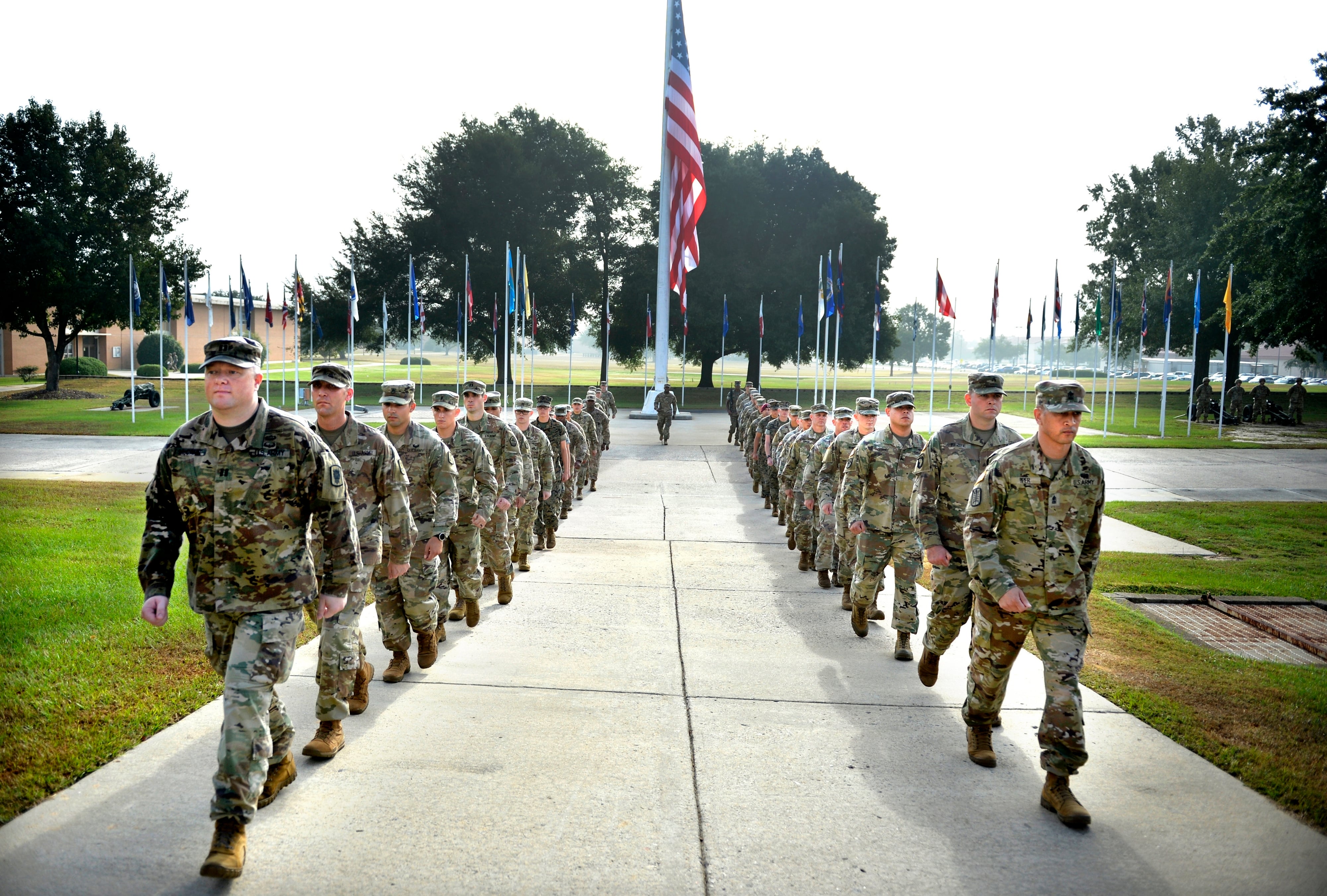A senior supply NCO assigned to U.S. Army Special Operations Command will soon face a general court-martial for allegedly stealing tens of thousands of dollars while deployed to the Middle East in 2017.
Master Sgt. Marcos Mowtejada was assigned to an unnamed unit under administrative control of USASOC at the time of the alleged thefts, according to Army officials. USASOC retains administrative control of secretive “special mission unit” personnel, such as those assigned to Delta Force or the Army Intelligence Support Activity.
USASOC spokesperson Bonita Ridley declined to provide more information about Mowtejada’s unit, which was redacted in a charge sheet obtained by Army Times. She also declined to name the country where the alleged thefts occurred. There are 20 countries within U.S. Central Command’s area of responsibility.
“MSG Mowtejada is a 92Y, Supply Noncommisisoned Officer,” she said in an email responding to questions from Army Times. “He is assigned to [USASOC].”
Mowtejada faces seven UCMJ specifications of making false official statements, one specification of disposing of government property without authorization, one specification of theft, two specifications of forgery, seven specifications of fraud against the government, one specification of violating federal commerce laws and one of dereliction of duty.
Mowtejada’s private defense attorney listed in court records did not respond to a request for comment from Army Times by publication deadline.
Missing cash and false receipts
According to the charge sheet, Mowtejada allegedly stole at least $5,000 in cash — he faces a charge of stealing “United States Dollars of a value more than $500” on multiple occasions on the deployment, and another charge says he “knowingly and unlawfully transport[ed] in foreign commerce, [stolen] money of more than $5,000.00.”
Ridley declined to specify exactly how much money Mowtejada allegedly stole. But Mowtejada’s alleged crimes went beyond taking cash.
The senior NCO is accused of falsifying reimbursement receipts and vendor invoices while deployed to the Middle East and after the unit’s return to Fort Bragg, North Carolina.
Prosecutors said in the charge sheet that Mowtejada doctored receipts and invoices to increase the amount reimbursed for field purchases of items, including circuit breakers, steel brackets, Yeti cups, vehicle windows, folding chairs, bedding supplies and storage cases.

He also allegedly filed a duplicate invoice for nearly $10,000 in diesel fuel that he “had previously submitted” for reimbursement, the charge sheets stated.
The purportedly doctored and forged invoices totaled nearly $15,000 in addition to the undisclosed quantity of missing cash, according to the charge sheet.
Ridley, the USASOC spokesperson, declined to specify how investigators had detected the alleged fraud, saying it was “part of what will be discussed at trial, therefore I cannot comment on this.”
Investigators from the Army’s Criminal Investigative Division were scrutinizing the expenses as early as January 2019, according to the charge sheet.
Mowtejada is accused of lying to CID agents when he told them that he “did not steal the money, but rather lost it,” in an interview on Jan. 6, 2019.
He also allegedly made a false official statement in July 2020 claiming that the duplicate diesel fuel receipts “were both valid purchases,” the charge sheet said.
Mowtejada is not the first soldier under USASOC to face fraud charges in recent years.
Five Green Berets from 3rd Special Forces Group were convicted of stealing counterinsurgency cash funds that were earmarked for humanitarian projects for Afghan police, such as roads, schools and medical clinics.
The thefts occurred while deployed in Afghanistan from 2009 to 2010, but they did not become public knowledge until mid-2019. The final defendant pled guilty in January 2020.
Three of the five soldiers convicted in the conspiracy still received honorable retirements from the Army.
Davis Winkie covers the Army for Military Times. He studied history at Vanderbilt and UNC-Chapel Hill, and served five years in the Army Guard. His investigations earned the Society of Professional Journalists' 2023 Sunshine Award and consecutive Military Reporters and Editors honors, among others. Davis was also a 2022 Livingston Awards finalist.





